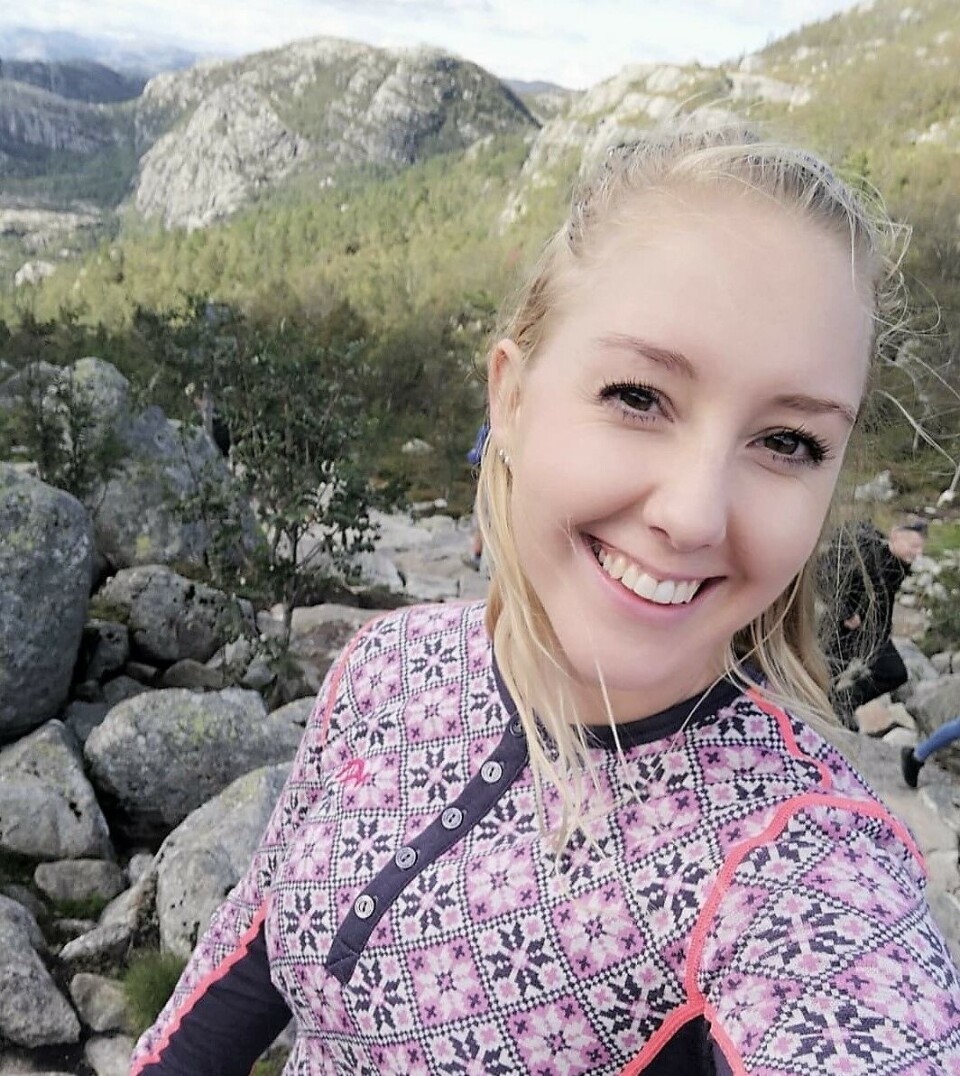THIS CONTENT IS BROUGHT TO YOU BY THE University of Agder - read more

Research-based tips to help you start working out
If your New Year’s resolutions involve increasing your physical activity and improving your health in 2024, we have some research-based tips to help you succeed.
Many of us plan to use January as a fresh start, both mentally and physically. But it can be challenging to know where to begin.
“It takes time to develop new habits, but if you’re motivated, it's certainly not impossible,” Benedikte Western says.
Her research focuses on physical activity and health at the University of Agder.
Start from scratch
Before you even begin, you need to consider what you want and what your priorities are.

Maybe you want to get into shape so that you can play with your children or go hiking with friends? Maybe increased activity will help you unwind and improve your sleep?
“Start by outlining the pros and cons you perceive in adopting a more active lifestyle. This will empower you with better control over the situation before you commence,” Western says.
Find an activity
The next step is to find activities that are suitable for you. Consider your level of motivation, the time it will require, and the equipment you have access to.
Western advises us to find a workout plan that we can stick to.
“If bad weather prevents you from going out, make sure you have the right gear. If you’re unsure about how to use the equipment at the gym, take a session with a personal trainer or ask a more experienced friend to be your workout buddy for the first few weeks,” she says.
There’s no one-size-fits-all when it comes to finding activities that suit you. One piece of advice is that you don’t have to start with grand ambitions; a little is better than nothing.
“One of the most common reasons why many people don’t succeed is that they lack consistency over time. Therefore, it’s incredibly important to be realistic and think long-term,” Western says.
Set smart goals
Once you have decided on one or more activities, you need to set some goals. These goals should follow the SMART acronym: specific, measurable, attainable, relevant, and time-bound.
“Goals like ‘exercise more’ or ‘get healthier’ won’t help much. Set specific goals that you can track and that you will achieve within a given time frame,” Western says.
Specific goals could be to play squash twice a week, be able to run three kilometres continuously in six months, or go for a half-hour walk every day.
“The goals you set should be realistic based on your current fitness level. You can gradually set more ambitious goals as you progress,” the researcher says.
You should also set sub-goals along the way to support your main goal. If your goal is to be able to run three kilometres, a sub-goal could be to have two sessions per week where you alternate between walking and jogging a certain distance. As you progress, you can increase the frequency and duration of these sessions.
“This approach allows you to establish a habit while also gradually increasing the workload on your body,” Western says.
Don’t do too much at the beginning
Now that you’ve decided, it may be tempting to tackle everything all at once. But it may be wise to hold back a bit, the researcher suggests. Trying to juggle exercising five times a week, quitting smoking, going to bed early, and eating more vegetables all in the same week can be overwhelming.
“If you try to do too much, you may end up struggling to meet all the targets and abandoning the entire plan. Taking a gradual approach increases the likelihood that your actions become habits that can be sustained over time,” Western says.
However, don’t be discouraged when things don’t go as planned. Sometimes you may have to adjust your plans along the way, and you will inevitably face obstacles. During such moments, it can be helpful to reflect on what motivated you in the first place.
Rewards are allowed
Does Western have any other advice for those planning to make a positive change in 2024?
“Tracking your workouts and progress can be a smart move. That way, it becomes a bit harder to slack off. If having a reward to look forward to when you achieve a goal motivates you, there’s nothing wrong with that, as long as the reward doesn’t compromise your objective,” she says.
Having a friend, partner, or family member on your team can also make it easier to achieve your goals, but Western emphasises that it’s not necessary for success.
“As time goes on, your new lifestyle will become more ingrained as a habit and a natural part of your everyday life. You’ll discover strategies that work for you and gain experience in overcoming obstacles,” she says.
References:
Carraça et al. Effective behavior change techniques to promote physical activity in adults with overweight or obesity: A systematic review and meta-analysis, Obesity Reviews, 2021. DOI: 10.1111/obr.13258
Curran et al. Efficacy, characteristics, behavioural models and behaviour change strategies, of non-workplace interventions specifically targeting sedentary behaviour; a systematic review and meta-analysis of randomised control trials in healthy ambulatory adults, PLoS One, 2021. DOI: 10.1371/journal.pone.0256828
Demmelmaier et al. Supporting stepwise change. Improving health behaviors in rheumatoid arthritis with physical activity as the example, International Journal of Clinical Rheumatology, 2013.
Bess, M. & Simkin, L.R. The transtheoretical model: applications to exercise behavior, Medicine & Science in Sports & Exercise, 1994.
———
Read the Norwegian version of this article at forskning.no

This content is paid for and presented by the University of Agder
This content is created by the University of Agder's communication staff, who use this platform to communicate science and share results from research with the public. The University of Agder is one of more than 80 owners of ScienceNorway.no. Read more here.
More content from the University of Agder:
-
Fear being rejected: Half pay for gender-affirming surgery themselves
-
Study: "Young people take Paracetamol and Ibuprofen for anxiety, depression, and physical pain"
-
Research paved the way for better maths courses for multicultural student teachers
-
The law protects the students. What about the teachers?
-
This researcher has helped more economics students pass their maths exams
-
There are many cases of fathers and sons both reaching elite level in football. Why is that?




































